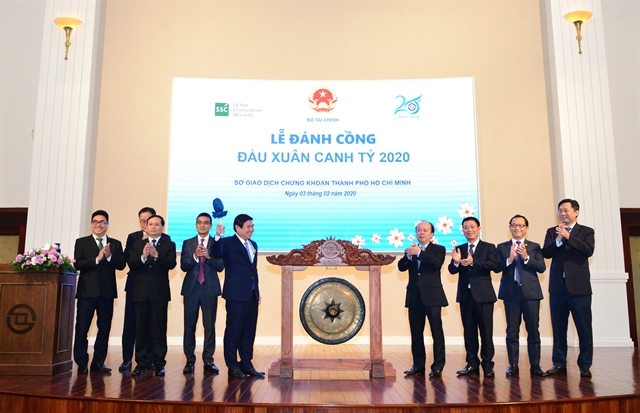HCM City will speed up equitisation of State-owned enterprises to bring good ones and their brands into the stock market, its chairman has said.

HCM City will speed up equitisation of State-owned enterprises to bring good ones and their brands into the stock market, its chairman has said.
Speaking at a ceremony on Monday to mark the reopening of the Ho Chi Minh Stock Exchange (HOSE) after the Lunar New Year holidays, Nguyen Thanh Phong hailed its achievements last year.
He said the city would focus on becoming an international financial centre.
“Therefore, the city wants HOSE to be closely linked to the international financial centre and become a ‘barometer’ of the economy.
“The city also hopes that HOSE will optimise its role as a channel to effectively mobilise and allocate resources, create connections and lead businesses and market members towards [adopting] international standards.”
Nguyen Vu Quang Trung, HOSE’s deputy CEO, said despite the global economic instability and trade conflicts, Viet Nam’s stock market remained an attractive destination for foreign investors last year.
This year would be an exciting one with important events in the securities industry, he said.
The amendments to the Securities Law that would come into effect on January 1, 2021, would be a turning point in perfecting the legal framework and improving market quality.
“The new, comprehensive, integrated information technology system created by HOSE is expected to be completed and put into operation this year.
“It will help modernise technology infrastructure, enabling Viet Nam's stock market to get closer to good standards and practices in the world.”
Deputy Minister of Finance Huynh Quang Hai spoke about some key measures envisaged to make the stock market stronger and more efficient in 2020.
They include completing decrees and documents guiding implementation of the amended Securities Law, restructuring the stock market, establishing the Vietnam Stock Exchange by restructuring the two existing markets, strengthening the equitisation mechanism, divesting State capital in enterprises, implementing measures to upgrade Viet Nam’s status from a frontier to an emerging market, and enhancing regulations of the market development, he added.
By the end of last year, the southern bourse had 382 listed companies.
Its market capitalisation is 250 per cent of the city’s GRDP, higher than the target of 70 per cent set for 2020, and the daily average trading is VND4 trillion (US$172 million), or 88 per cent of the country’s total. — VNS





